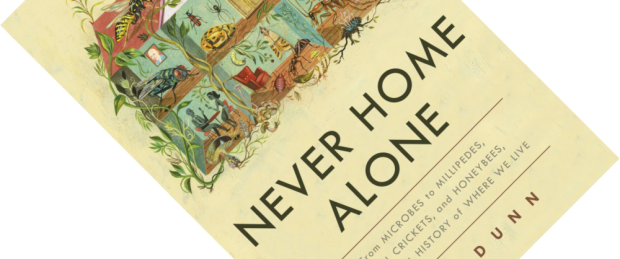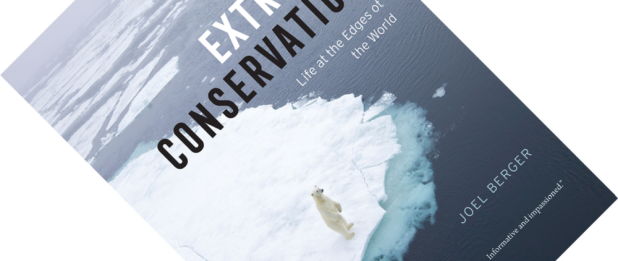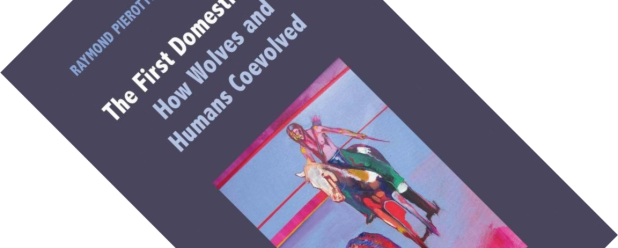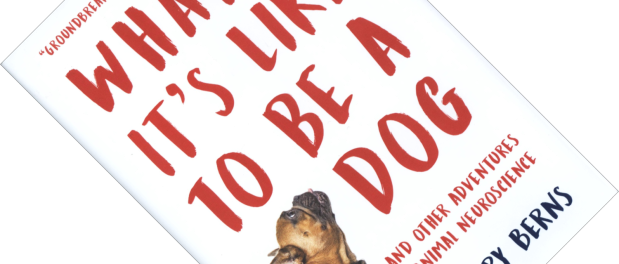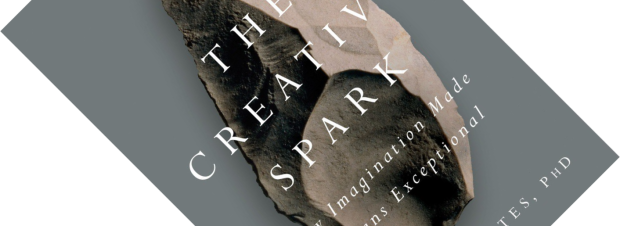The term “wildlife” tends to evoke images of apex predators, cuddly creatures, or flagship species – usually vertebrate, usually mammalian – living outdoors in the wilderness of jungles, plains, or oceans. But what about closer to home? What about in your home? Ecologist Rob Dunn has written a delightful book showing that we live amidst a veritable zoo.
dogs
Book review – Extreme Conservation: Life at the Edges of the World
Wildlife conservation and field biology are not for the faint of heart. Studying wild animals in their natural habitat brings with it long periods away from home, lack of comfort, and many logistical challenges. It calls for a certain kind of grit. But equally, it requires a persistent mindset to fight the cause of wildlife when conservation clashes with company’s bottom lines, political aspirations, and the wants and needs of an expanding world population. Even amongst this hardened bunch, few people would voluntarily venture into icy wastelands to study the animals existing at the edge of the world. Joel Berger is one of them and Extreme Conservation is his story, equal parts adventure narrative as it is a meditation on the value of wild nature.
Book review – Unnatural Selection
Six years ago (is it already that long?) Katrina van Grouw blew me away with her gorgeously illustrated book The Unfeathered Bird, which gave a unique insight into bird anatomy. Her new book, Unnatural Selection, again features her unique combination of accessibly written text and lavish illustrations. The book celebrates the 150th anniversary of Charles Darwin’s The Variation of Animals and Plants under Domestication. In this and in On the Origin of Species, Darwin frequently referred to the rapid changes that breeders could bring about in plants and animals to make evolution understandable. And yet, biologists and naturalists don’t generally hold breeders and their breeds in high regard. In that sense, Unnatural Selection also celebrates their work and knowledge.
Book review – The First Domestication: How Wolves and Humans Coevolved
The evolution of domestic dogs from wolves is something that has been written about a great deal. Seeing dogs are one of our oldest domesticates and very close to our hearts, there has been an intense interest in this subject. The First Domestication provides a new perspective by turning to a rich vein of knowledge that is often ignored by contemporary Western scientists: traditional stories from tribal and indigenous peoples. If the sound of that makes you roll your eyes – something I am normally much inclined to do – you would be missing out on an incredibly well-written book that deserves your full attention.
Book review – What It’s Like to Be a Dog: And Other Adventures in Animal Neuroscience
Do you have a dog? I grew up surrounded by Newfoundlanders. Ever wondered what they are thinking? Whether they think at all? You’d be forgiven for thinking that What It’s Like to Be a Dog is another book for dog lovers and, in part, it is. But don’t let the title mislead you, this book is primarily a popular account of ongoing developments in animal neuroscience, specifically on what scanning mammal brains using magnetic resonance imaging (MRI) can tell us about our shared similarities.
Book review – The Creative Spark: How Imagination Made Humans Exceptional
With his new book, The Creative Spark, Agustín Fuentes, a primatologist and anthropologist currently at the University of Notre Dame in Indiana, boldly puts forth the idea that what makes humans special is creativity. The ability of humans to switch back and forth between considering what is, and dreaming of what might be, and to then put these thoughts into actions (often collaboratively), has brought us a very long way from our primate origins to the tool-wielding, world-shaping force of nature of today. Along the way, Fuentes wants to do away with some of the dominant narratives regarding human evolution today, or rather, he thinks most of them oversimplify things and lead to distortions in our thinking. Instead, he presents a new synthesis that places creativity front and centre stage as being the most important mechanism that helped us overcome challenges.

